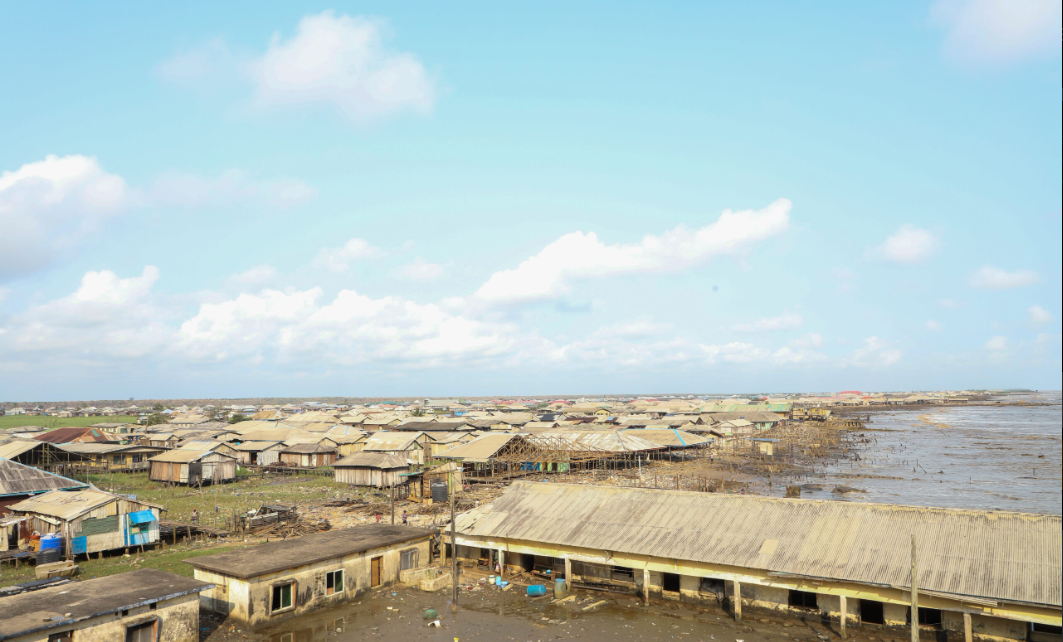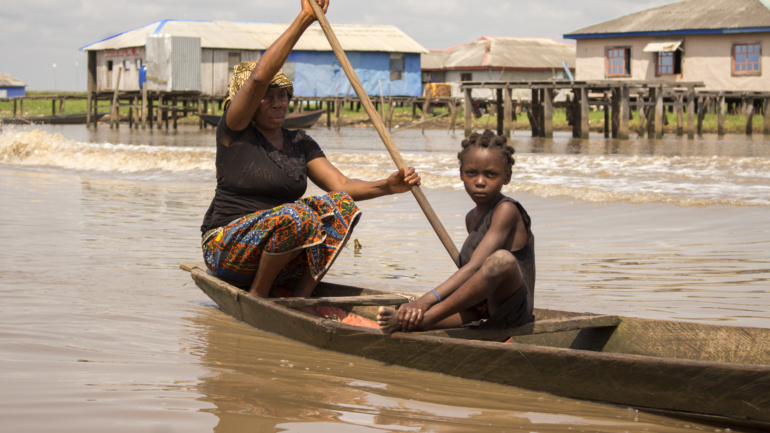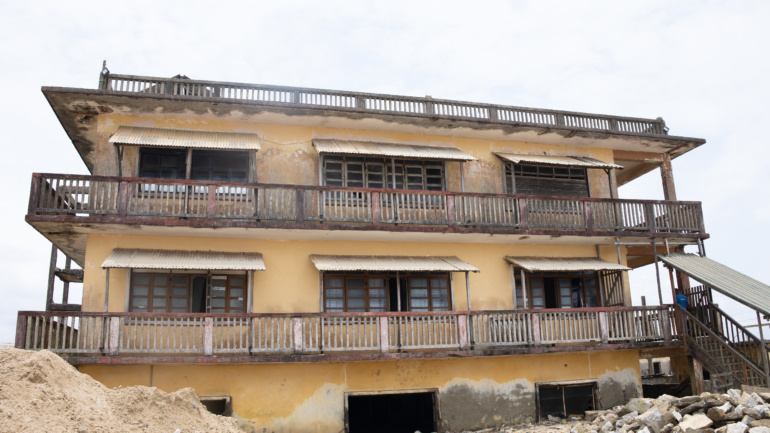The sea has always been Ayetoro’s neighbour, but today, it has become its greatest enemy. Once called “The Happy City” and admired for its faith, unity, and communal vision, Ayetoro is now on the brink of disappearance. More than 90 per cent of the community has been swallowed by the Atlantic Ocean, leaving behind ruins, memories, and a people struggling to hold on.
A Vanishing City
Founded in 1947 by local fishermen as a utopian Christian community, Ayetoro was famous for its self-governance, orderly streets, and thriving economy. Foreign visitors nicknamed it “Small London,” marveling at how a people built a just and equal society out of the sand.
Today, that proud experiment is sinking. Where there were once 45 streets filled with homes, schools, churches, and health centres, only a handful remain. The palace, once the crown jewel of Ayetoro with nearly 100 rooms, now stands with its ground floor underwater—its walls fighting against the tide.
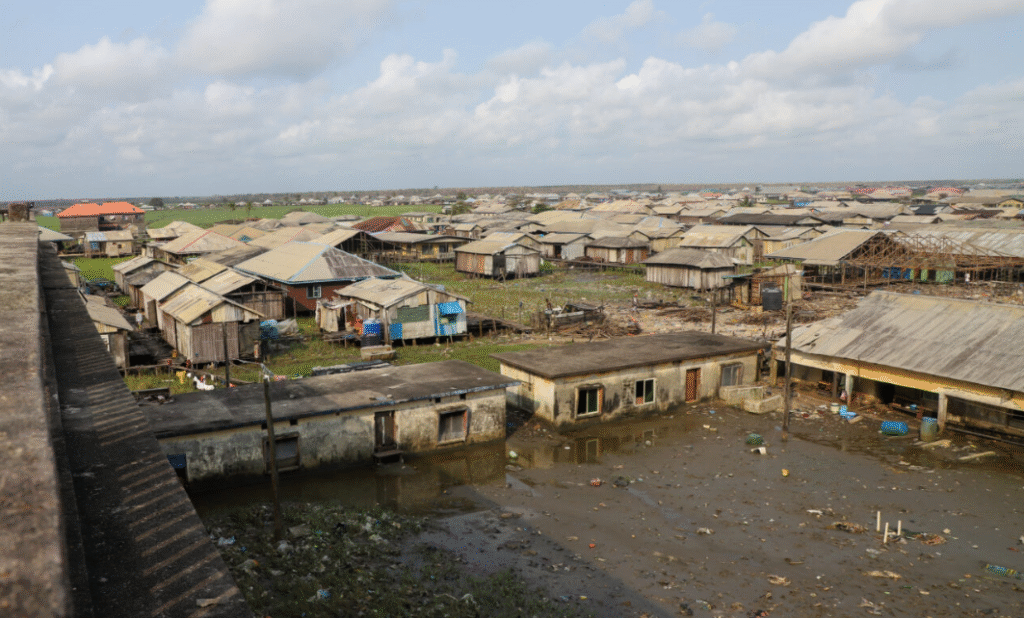
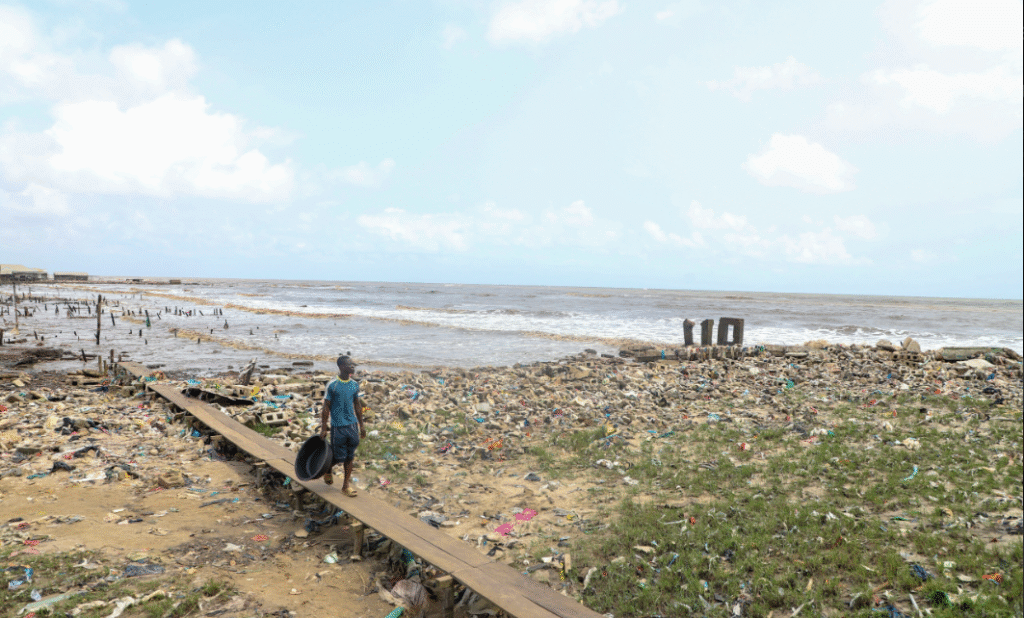
Lives Displaced
For the more than 5,000 people displaced, the loss is not only physical but also emotional. Families have watched their ancestral homes crumble into the sea. Traders have lost their markets, fishermen their docks, and children their classrooms. Some landlords have become tenants in their own hometown, while others have no choice but to sleep wherever they can find shelter.
“We built this town with our hands, without government support,” said one elder, pointing to the waves now rolling over what used to be Broad Street. “Now, the sea is taking it away piece by piece. We fear there may soon be nothing left to pass on to our children.”
The Human Cost of Erosion
Erosion in Ayetoro is not a new story. Since the late 1990s, the sea has been steadily advancing, swallowing houses and infrastructure. But in recent years, the pace has quickened alarmingly, driven by climate change and worsened by decades of oil exploration that have disrupted the natural balance of the coastline.
Schools and health centres have been destroyed. Roads are gone. Entire families live scattered, surviving through communal aid and the generosity of relatives. The once-thriving community that dreamed of equality now struggles for survival.
A Call for Action
Despite the devastation, the people of Ayetoro continue to fight. They have built small wave breakers with salvaged materials, raised funds in churches to buy cement, and pleaded with government officials for urgent intervention. Youths and elders alike have called for a state of emergency to be declared, warning that what is left of Aiyetoro will soon vanish without serious support.
The Green Institute have amplified the community’s voice, bringing their story to regional and international platforms. Their message is clear: if Ayetoro disappears, it will not only be the loss of a town but also the erasure of a powerful symbol of African resilience and communal vision.
A Fading but Unbroken Spirit
Ninety per cent of Ayetoro may be gone, but its spirit is not yet lost. In the songs of its people, in the determination of its youth, and in the memories preserved through storytelling, Ayetoro still stands. But time is running out, and unless urgent action is taken, the Happy City may soon live only in memory and in the waves that claimed it.

